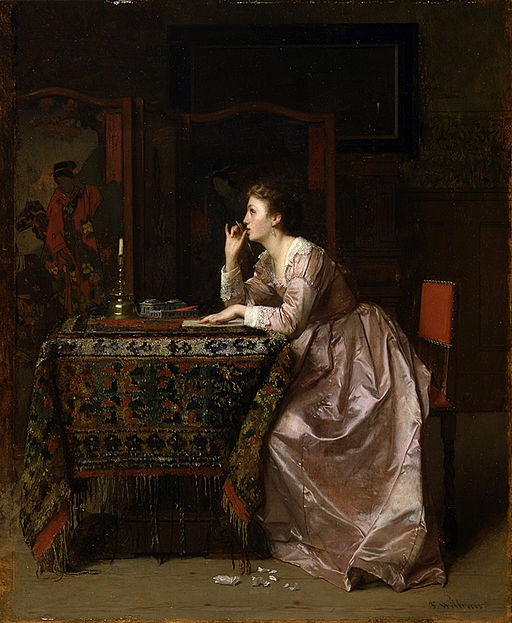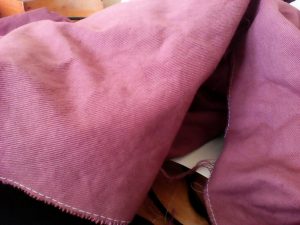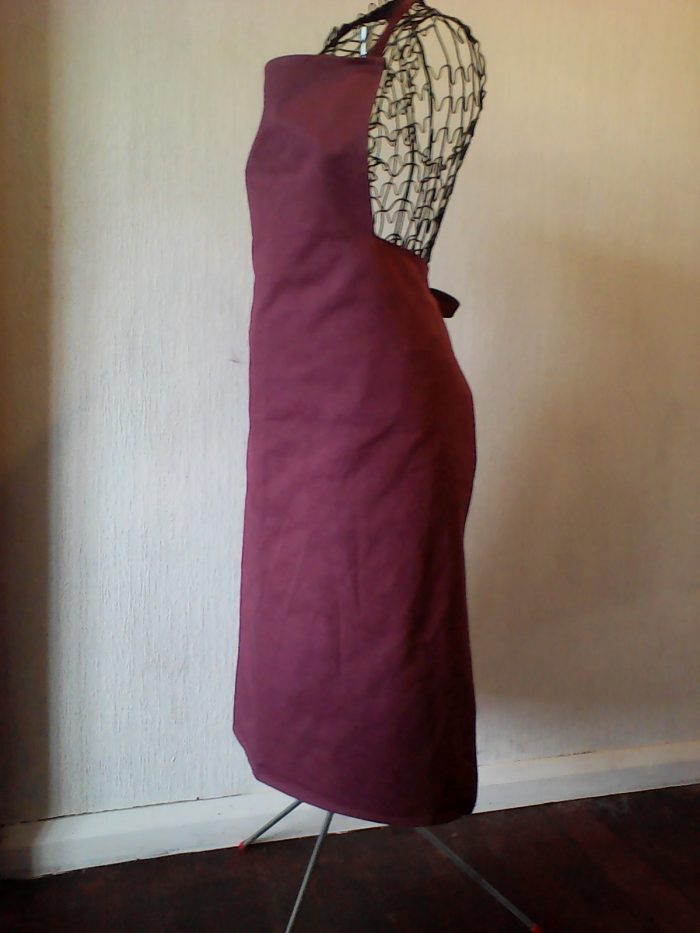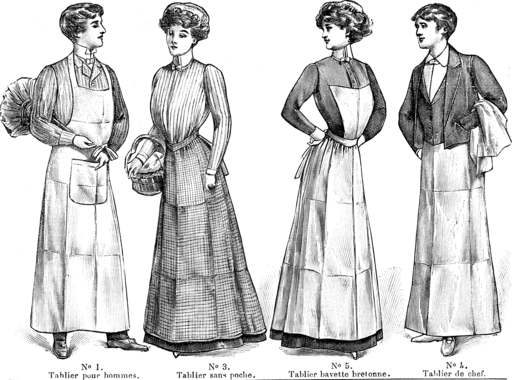 Many women have asked me if it is possible to have a well-built wardrobe on a limited budget. ‘Money,’ I tell them, ‘is no guarantee of taste, and an overstuffed wardrobe is often as bare as a skeleton when it comes to wearable apparel.’
Many women have asked me if it is possible to have a well-built wardrobe on a limited budget. ‘Money,’ I tell them, ‘is no guarantee of taste, and an overstuffed wardrobe is often as bare as a skeleton when it comes to wearable apparel.’
Edith Head
Budgeting Clothing
Do you budget your clothing?
Not in the utility clothing kind of way – so many buttons permitted per garment, so many inches of stitching or feet of hem – but in the sense that you have a fixed amount of money each year that you can spend on clothing.

Upskilly & Stuff 2: The Apron
Rectangle, rectangle, string, string, string.
One big rectangle for the bottom part; one smaller rectangle (optional) for the upper part; and three ties: one to go round your neck (unless you opted out of the upper part or wish to pin the bib on in the old-school manner) and two to fasten the whole shebang around your waist. 1-2 rectangles + 2-3 strings = apron.
I actually cheated a bit: I cut the top part and the bottom part (bib and, er, skirt?) in one – a bit wasteful of fabric, but it worked for the piece I had. Piece of fabric, bias binding for ties, and I was good to go – or was I?
The bias binding was, frankly, the colour of empty sausage casings; the fabric was bright white. Two problems there: one, they don’t go; and two, white is not a good colour for an apron unless you like to spend a lot of time soaking things in stain remover.
Solution: the left-over packet of dye from the triangle dress. Since the uncut fabric was too heavy (i.e. would have resulted in a lighter colour) I cut out the apron shape first, and then stay-stitched the raw edges (a line of stitches close to the edge, to control fraying & distortion), before flinging it, along with the bias binding, into the dye bath.

Learning moment: bias binding, be it never so starchy, will lose its shape the minute you get it wet, and become little more than a tragic draggle. Incidentally, I was unsure to begin with whether the bias binding was natural fibre or something which wouldn’t take the dye. So I snipped a little bit off and set it on fire. General rule of thumb: if it burns, it’s dyeable. If it melts, you’re wasting your time, because a) it won’t dye and b) it’ll make a rotten apron. (Please observe due caution and common sense when setting things on fire.)
Once the dyeing was completed and the materials had dried (hanging on the line for a night, which tells you how hot it’s been here lately) I ironed them. Then I pinned one end of the bias binding (folded double) to one end of the top, and figured out how much I’d need for the neck band. (Never forget to add seam allowances.)
I cut the remaining piece in half for the ties, pinned the right sides of each piece together, sewed them into tubes and turned them right side out again. (I could have whipped the two edges together if it had stayed in the classic bias binding shape, but alas, it was not to be. Perhaps I should have staystitched that as well.) A bodkin can be useful for turning the tube (I used the safety-pin approach) but make sure that this is a sewing bodkin, and not a dagger, please!

Then the sewing! This went pretty well until I got to a corner where two sets of double-fold hem and a tape met. The fabric I’m using is something like a heavy canvas or denim, and it makes for some chunky folds. Had I thought of this earlier, I could have taken the sewing advice I saw once: put it on a piece of wood and flatten it with a hammer. But I managed to pass through the edge, and went back to sew the rest firmly in place afterward by hand. Also by hand (because I forgot at the make-a-tube stage): sewing the free ends of the waist tapes closed.

Ta da! It is done, finished, complete. As far as I can see, it has only two issues: the front gapes a bit (still, it’s an apron, not a bib) and it’s kind of… pink. It remains to be seen whether I find it too pink to wear or not.
But, whether I keep it or not, I’ve practiced measuring, cutting, hemming, messing about with bias binding and attaching tapes.
Next month: a simple skirt or slip!

